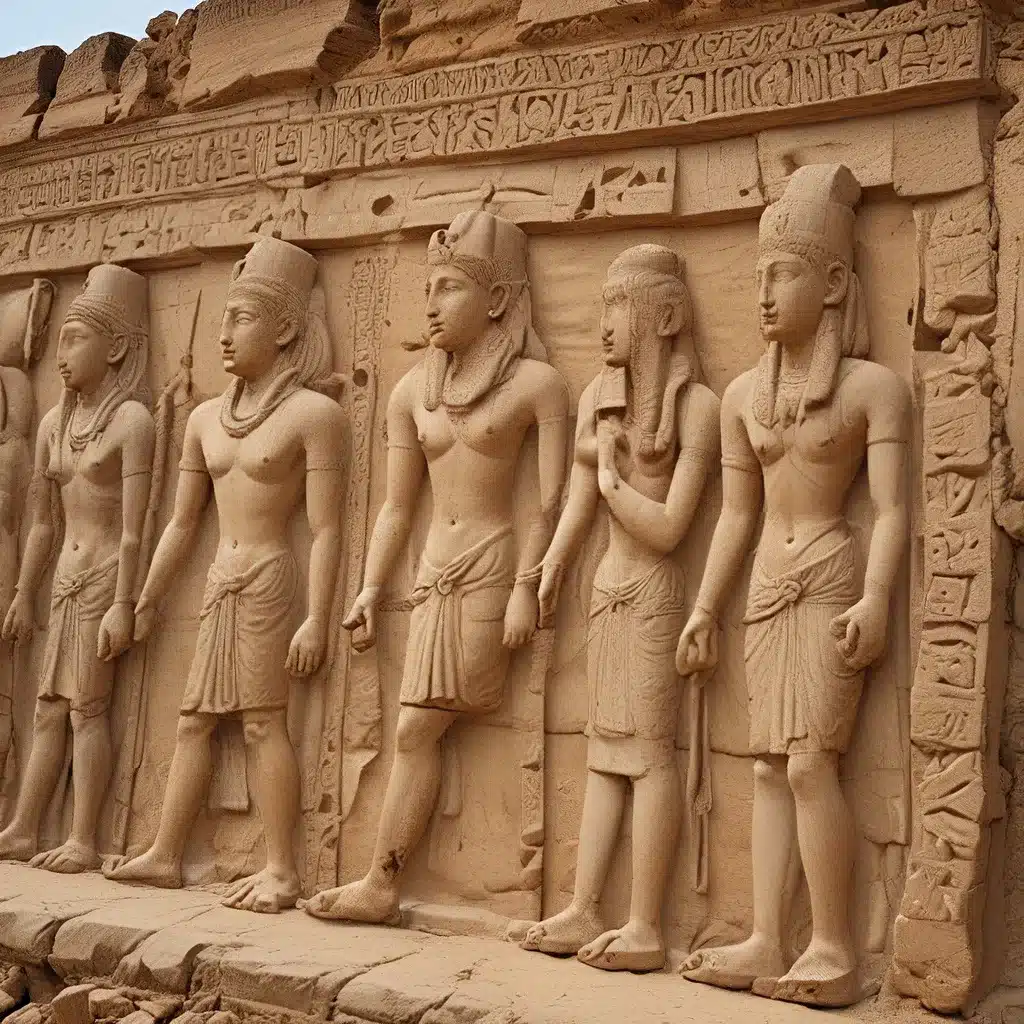
Unraveling the Mysteries of Ancient Civilizations
The study of ancient civilizations has long captivated the human imagination, as we seek to understand the complexities of our shared past. From the towering achievements of the Egyptians and the Mayans to the enigmatic rise and fall of the Indus Valley Civilization, each archaeological discovery and historical analysis offers a tantalizing glimpse into the lives, beliefs, and societal structures of these lost cultures.
As our understanding of the ancient world evolves, so too do the narratives we construct to make sense of it. Recent advancements in scientific dating techniques, the decipherment of ancient scripts, and the unearthing of new archaeological sites have all contributed to a more nuanced and comprehensive picture of humanity’s collective history. It is within this context of continuous discovery and reinterpretation that we must approach the study of antiquity, with an open mind and a willingness to challenge our preconceptions.
Rewriting the Narratives of Lost Civilizations
One of the most significant developments in the field of ancient history is the increasing recognition of the diversity and complexity of ancient cultures. Traditionally, the narratives of ancient civilizations have been shaped by the perspectives of Western scholars, often overlooking the contributions and experiences of non-Western societies. However, as scholars and archaeologists from diverse backgrounds have joined the conversation, a more inclusive and multifaceted understanding of the past has emerged.
Take, for example, the Indus Valley Civilization, which flourished in what is now modern-day India and Pakistan from around 3300 BCE to 1300 BCE. For decades, this advanced urban society was largely overshadowed by the more well-known civilizations of Mesopotamia and Egypt. Yet, recent archaeological excavations and the decipherment of the Indus script have revealed a sophisticated culture, with advanced urban planning, complex trade networks, and a unique system of writing.
Similarly, the Mayan civilization, long regarded as a mysterious and isolated society, is now understood to have been part of a dynamic and interconnected network of cultures that stretched across Mesoamerica. The discovery of new Mayan cities and the translation of their hieroglyphic writing have shed light on the political, social, and religious complexities of this remarkable civilization.
Challenging Established Narratives
As we delve deeper into the past, we must also be willing to challenge the established narratives that have shaped our understanding of ancient cultures. New evidence and interpretations can often upend long-held beliefs and force us to rethink our assumptions.
One such example is the ongoing debate surrounding the collapse of the Mayan civilization. Traditionally, scholars have attributed the decline of the Mayan city-states to environmental degradation, warfare, and social upheaval. However, recent research has suggested that the Mayan collapse may have been a more gradual and multifaceted process, with some city-states continuing to thrive long after the perceived “collapse” of the civilization.
Similarly, the role of women in ancient societies has long been overlooked or minimized in historical accounts. However, as archaeologists and historians have begun to re-examine the evidence, a more nuanced understanding of the significant contributions and influence of women in the ancient world has emerged. From the powerful female rulers of Egypt to the influential priestesses and artisans of the Indus Valley, the stories of ancient women are slowly being reclaimed and woven back into the broader narrative of human history.
Embracing Interdisciplinary Collaboration
The study of ancient civilizations is not the sole domain of archaeologists and historians; it is a collaborative effort that draws upon a wide range of disciplines, from linguistics and anthropology to environmental science and computer technology. By embracing this interdisciplinary approach, scholars are able to uncover new insights and challenge established assumptions.
For example, the application of advanced imaging techniques, such as ground-penetrating radar and aerial photography, has led to the discovery of previously unknown archaeological sites, offering a more comprehensive understanding of ancient urban planning and infrastructure. Similarly, the use of stable isotope analysis and ancient DNA has revolutionized our understanding of ancient diets, migration patterns, and genetic relationships between populations.
Moreover, the collaboration between archaeologists, linguists, and anthropologists has been crucial in deciphering ancient scripts and understanding the cultural significance of various archaeological artifacts. The decipherment of the Mayan hieroglyphic writing system, for instance, has provided a wealth of information about the political, religious, and social structures of this remarkable civilization.
Embracing the Complexity of the Past
As we continue to unravel the mysteries of ancient civilizations, it is essential that we embrace the inherent complexity and diversity of the past. Each culture, each archaeological site, and each historical narrative presents its own unique challenges and opportunities for understanding.
By approaching the study of antiquity with an open and curious mindset, we can move beyond the simplistic narratives of the past and embrace the nuanced and multifaceted nature of human history. This, in turn, will not only deepen our appreciation for the achievements and experiences of ancient societies but also inform our understanding of the present and guide us towards a more inclusive and equitable future.
The Lost Kingdoms is dedicated to exploring the rich tapestry of ancient civilizations, uncovering new insights, and rewriting the narratives of our shared past. By engaging with the latest archaeological discoveries and historical analyses, we invite you to join us on a journey of discovery, where the stories of antiquity come alive and the mysteries of the past are unraveled.


